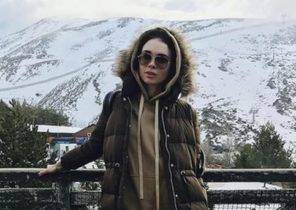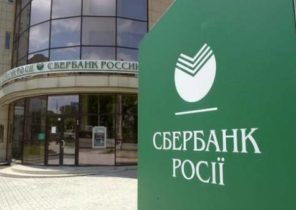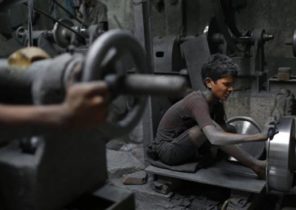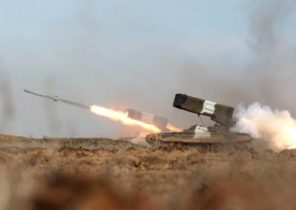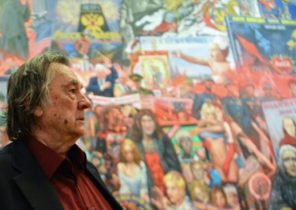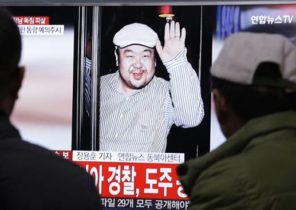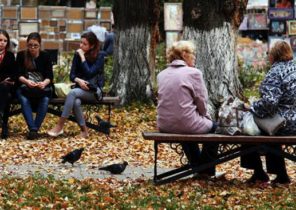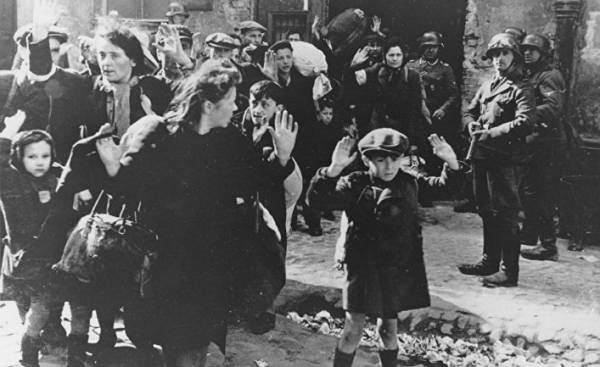
The content of some of the documentaries that go on a historical theme TV channels sometimes brings sad thoughts. Some of them broadcasting in the Polish language. Their popularity is hard to compare with that, some are entertainment programs, however, they gather in front of blue screens to an audience that never dreamed of the authors of popular science books about history. There are programs available (most often it is a documentary), repeated later in many countries of the world, you can watch them on the Internet. In the end, they get to know millions of viewers, many of which these films are often the only source of knowledge about ancient and modern history.
All erased from your memory
I recently watched the seventh series of the documentary “the Destruction of the European Jews”, which shows the channel Polsat Viasat History. Its creators had incomparably more resources than the Polish documentary filmmakers, so that they could use in the film rich in archival footage. I found a description of a series called “the Origins of mass destruction”, which indicated that she will talk about post-war fate of the surviving Jews. The name hinted at some deeper analysis of the “origins”. As it turned out, a description consistent with the content only partly.
The starting point of the story becomes October 1945, when the Nuremberg, the trial of the major war criminals. German perpetrators of crimes against Jews, the courts have engaged in later. Approximately the third part of the movie its creators in search of the roots of the Holocaust migrated to Poland and tell the story of the Jews who managed to survive or return from the concentration camps. This return, of course, was not easy, but what we see in the film is beyond the limits of decency.
The main narrator becomes Jan Tomasz gross (Jan Tomasz Gross), from the pen which produced such books as “Neighbors” and “Fear” that caused a lot of controversy. From it the viewer learns how it looked post-war situation of Jews in Poland. “The Jews fled from our country, often in camps on the territory of Germany. This may seem strange, but they sought refuge there. They fled because they were afraid to stay in Poland, explains gross. — Half of those who survived left in the first three months. In a country where before the war lived many Jews, they are almost gone. Everything was erased from memory, as in the oświęcim Museum, where it was difficult to find the words “Jew””.
The film is shown, in particular, caused a stir photo from the book gross. “There is one striking picture… It’s like a holiday on the successful completion of the harvest. We see farmers and their crops, but there is bones and skulls, — gross sure that the photo shows the poles, who in search of the Jewish treasures of conduct excavations in the former concentration camp. — Such actions are staged wherever there were mass executions. In attendance were local residents. This continued for many years”.
Unfinished Holocaust
In a similar tone expressed all the historians who appear in the film. “This kind of excavations were conducted in all camps: Belzec, Sobibor, Treblinka, Majdanek, Auschwitz,” says historian Robert Kuwalek (Robert Kuwałek). “Every night, hundreds of peasants were digging to look for gold and jewels,” adds the historian Yitzhak Arad.
In another piece of the picture of gross argues that many returned to their homes the Jews who wanted to “find relatives or to deal with their property, were killed in different incidents”. From his words follows, that the riots occurred not only in Kielce, but after the war became commonplace. What was it like? “Down the street was a group of people and spoke to the truck driver: “Look, we’re going to smash the Jews. Ride?” And it was like it was perfectly natural, replied: “of Course, sit down”. In various places there were stories about missing children, the reaction began pogroms.” As suggested by gross, that’s just the tip of the iceberg: “took Part in this mass of people, the number of victims was enormous.”
He was echoed by the curator of the Archive of Ringelblum Eleonora Bergman (Eleonora Bergman). “Many Jews were killed because people feared for their property or their homes.” Serious allegations made as to the Catholic Church for its inaction. “The Church was obliged to interfere, but that didn’t happen,” says gross.
Shown in many countries, the series is a Franco-German production was released in 2015. The creators of the film not a single word mentioned about the fact that the book of gross, and his thesis became in Poland the subject of hot debate, and other historians appeared to him many complaints. Gross is accused, in particular, in the selective approach to sources, one-sided interpretation of the documents, and the tendency for unwarranted generalizations. However, all appearing in the picture of Polish and foreign commentators share the opinion of the author of the book “Fear”.
Of course, the documentary is not a scientific work, it is arranged by the rules, but maybe, in order to maintain impartiality, it was worth at least mention the controversy? Why as a commentator was not invited to at least one historian who has a different opinion? The Holocaust and Polish-Jewish relations after the Second world war should be presented honestly without over simplification, but after watching this series, the viewer can conclude that the poles had not completed the Germans started the Holocaust because the Jews managed to escape from Poland.
In the foreign media regularly reports about the involvement of poles in the Holocaust and “Polish concentration camps”. A fresh example is the publication of the online version of the newspaper El País “Poles are rewriting their own history of the Second world war.” We protest, served in the courts, but maybe we should create Polish history channel with a rich set of his documentary, which was broadcasting in different languages and could reach spectators throughout Europe.
The monks, or the Church of the SS
On the historical channels you can find a lot of interesting pictures of the documentary genre, but there are more movies that are only disguised as him. When it comes to the Catholic Church, it often (as it happens in “the Origins of mass destruction”) appears in a negative light. Some authors retain at least some decency and after the story about the alleged committed by the Church and its representatives the crime (e.g., the Crusades) I propose to speak to historians and publicists that give the events a more balanced assessment. More often, however, these documentaries remind propaganda and agitation. Some paintings are so imbued with hatred for the Church and look so ridiculous that it is difficult for them to take it easy.
One example is the series “the Time of the Inquisition,” which also went to the channel Polsat Viasat History. The Catholic Church is not proud of the Inquisition, however, her image, which over the centuries has managed to gain a foothold in the public consciousness (to put a hand including scientists), is based more on myths than on facts.
After watching one episode of “the Time of the Inquisition,” I can confidently say that the filmmakers do not understand the events of that era, of which they tell. Other series I did not watch: after the first I came to the conclusion that it would be a waste of time. The first consisted of epithets. In the beginning of the film the viewer reported the following: “the Inquisition spread across Europe like the plague, it turned the middle Ages into one of the most brutal periods of history. It was large-scale ethnic cleansing and genocide on religious grounds. Charges of heresy and / or witchcraft had affected a third of the companies. Religious crimes lasted more than five hundred years.”
The narrator’s words are accompanied by projections of scenes of horrific torture. After all, “these dressed in robes monks were the Church, the Gestapo, and his SS”. Why in Spain there was the Inquisition? Because “attempts to conquer the Holy land ended in failure. The Pope and his cardinals felt humiliated and decided to find other heretics that it is possible to return to the bosom of the Church, or to kill, at the same time appropriating their property. This role is ideally suited… the Jews, the Inquisition was only interested in power and wealth.” After this introduction it becomes clear what will tell you the film (as well as other similar works on “Church” theme).
I don’t know whether you can defeat the lie that this number sounds in these mockumentary movies. But you can try to do it, for example, creating interesting for the audience of professional paintings on similar controversial subjects, putting in their basis the results of the studies, serious historians, not common myths.
